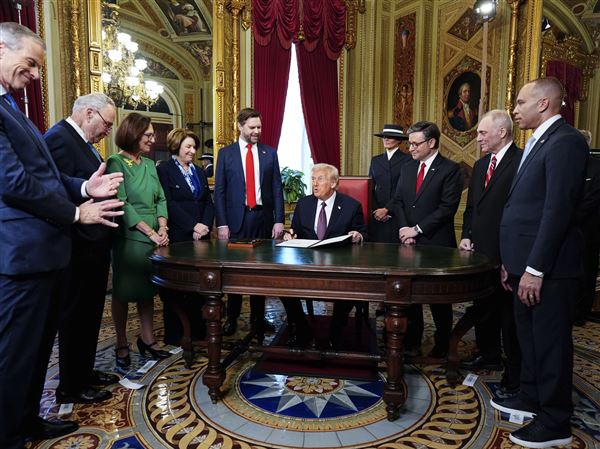Correction Appended
ATYRAU, Kazakhstan -- On the northern reaches of the Caspian Sea, not far from this old Soviet town known for its oil and sturgeon, lies a vast new oil find, the biggest outside the Middle East. China was rebuffed when it asked for a stake 10 years ago.
But when the pumps finally started this month, the China National Petroleum Corporation had won a share in the project, known as Kashagan, and President Xi Jinping was in the region recently to celebrate, another indication that China's influence has eclipsed even Russia's across the former Soviet republics of Central Asia.
China's urgent quest for energy is the main driver of its strategic interest in a region whose proximity allows huge reserves of oil and gas to be moved overland through Chinese-built pipelines rather than by ship through American-dominated sea lanes from the Middle East.
In the long term, analysts say, China's economic ties with Central Asia could liberate it from any concern that the United States could use its superior naval power to enforce a sea blockade, should relations ever deteriorate to the point of confrontation.
Here in Kazakhstan, the most prosperous of the former Soviet republics, Mr. Xi formalized the $5 billion deal for Kashagan, which for the first time places China in a consortium alongside the big international players: Exxon Mobil, Shell, Total and the Italian company ENI.
In Turkmenistan, Mr. Xi opened a new onshore gas field, the second biggest in the world, one that the Western energy companies had been vying for, but that will now send gas through a Chinese-built, 1,100-mile pipeline that stretches all the way to Shanghai.
In less-affluent Uzbekistan, China has become the country's second-largest trade partner. And in energy-poor Kyrgyzstan, Mr. Xi was the center of attention at the China-bankrolled Shanghai Cooperation Organization annual meeting, pushing President Vladimir V. Putin of Russia to the side in the group photo.
China's increasing role in the region not only has surpassed Russia's, analysts said, but has been buttressed by the United States' waning influence as it winds down the war in Afghanistan. Washington, once eager to bolster the presence of big Western oil companies as a way to trim the power of Russia, has receded on that front, too.
"China has a very good instrument here -- a lot of money and very good conditions on credit," said Dosym A. Satpayev, director of the Kazakhstan Risk Assessment Group, as he dined in an upscale restaurant in Almaty. "Russia doesn't have that. The influence of Russia has decreased in the last 15 years."
Kazakhstan is a founding member of the customs union that Mr. Putin engineered in 2010 to try to knit the former Soviet states together in an economic community. But Mr. Putin's pressure has failed to stem China's rise, Mr. Satpayev said. In Kazakhstan, China is now considered the largest foreign oil producer, said Erica S. Downs, an energy analyst at the Brookings Institution in Washington.
Until the opening of the Central Asia-China pipeline in 2009, Russia was the biggest customer of natural gas from Turkmenistan. Now China draws energy from two fields in Turkmenistan, having outfoxed Exxon Mobil and Chevron to gain access to a lucrative site called Galkynysh, said Steve LeVine, author of "The Oil and the Glory: The Pursuit of Empire and Fortune on the Caspian Sea."
"Now China has a second gas field in Turkmenistan, and the Turkmen leader is doubling down on Xi," Mr. LeVine said.
While energy was uppermost on Mr. Xi's agenda, it was not China's exclusive interest, said Altay Abibullayev, spokesman of the Central Communications Service for the president of Kazakhstan.
"China's growth is amazing, and we are trying to diversify the investments so that it can be profitable for both sides," he said.
Kazakhstan is rapidly expanding its Internet services, and Huawei, China's huge telecommunications equipment maker, signed a two-year agreement to provide a fourth-generation nationwide network, the Chinese ambassador to Kazakhstan, Le Yucheng, said.
In strikingly warm language, Mr. Xi spoke at the Nazarbayev University in Astana about a Chinese-financed new Silk Road that would run from China through Central Asia to Europe.
It is a theme that the United States used to invoke, too, with Secretary of State Hillary Rodham Clinton talking in 2011 about a north-south Silk Road that would connect the Central Asian nations to Afghanistan by rail and road. But little is heard of that now. In Mr. Xi's vision, China's east-west Silk Road is seen as a more natural fit than Mrs. Clinton's notion because the Chinese route retraces the ancient trade routes. "This is practical cooperation," Mr. Xi said as President Nursultan Nazarbayev sat next to him on the podium at Nazarbayev University.
It is not all plain sailing for China in Central Asia. There are fears, bordering on xenophobia, some Kazakhs say, of a hugely populated and rich China, and the angst is particularly keen in Kazakhstan, a place of only 16 million people in a land larger than Western Europe.
China was forced to accept the Kazakhstan government's limits on Chinese workers. That holds back even more Chinese investment in Kazakhstan, said a Chinese manager in Atyrau.
Whether Kashagan turns out to be a real prize for China remains a question. China has coveted the oil at Kashagan since it was discovered in 2000.
Efforts by the China National Offshore Oil Company and Sinopec to join the Western-led consortium in 2003 were rejected because the founding companies believed the field would be so productive they wanted it all for themselves, said Edward C. Chow, senior fellow at the Center for Strategic and International Studies and a former executive with the Chevron Corporation.
The Chinese revived their interest last year when Texas-based ConocoPhillips decided to sell its share back to Kazakhstan. At first, it appeared India's Oil and Natural Gas Corporation would buy ConocoPhillips's share. But at a meeting between Mr. Xi and Mr. Nazarbayev in China in the spring, the Kazakh leader said he preferred China to India, and he handed Beijing a prime role in the project, Indian and Chinese officials said.
Although the early oil at Kashagan has begun to flow, the Western oil companies remain frustrated at the enormous technical difficulties caused by the depth of the oil in the seabed, and the high sulfur content of the oil, Mr. Chow said. The companies are also disheartened by the more than $40 billion expense so far for relatively low initial output of 375,000 barrels a day, he said.
Yet, China is well positioned for a bigger role, including directing the oil to China rather than to the West when more production becomes available, he said.
In Mr. Xi, Mr. Nazarbayev has another suitor he can turn to if the talks with the Western oil companies get tough.
Indeed, Mr. Nazarbayev, 73, a former Communist Party chief from the Soviet era, appears to have cultivated a special relationship with Mr. Xi, 60, China's new Communist Party secretary-general. They spent 14 hours together during Mr. Xi's visit, including some informal sessions: breakfast as they flew between cities in Kazakhstan, and a nighttime get-together at Mr. Xi's hotel in Astana, Mr. Le said.
"They drank vodka together, and talked a lot," he said.
Correction: September 24, 2013, Tuesday
This article has been revised to reflect the following correction: An earlier version of this story misspelled the name of a Chinese telecommunications equipment maker. It is Huawei, not Huawai.
First Published: September 24, 2013, 10:00 p.m.















